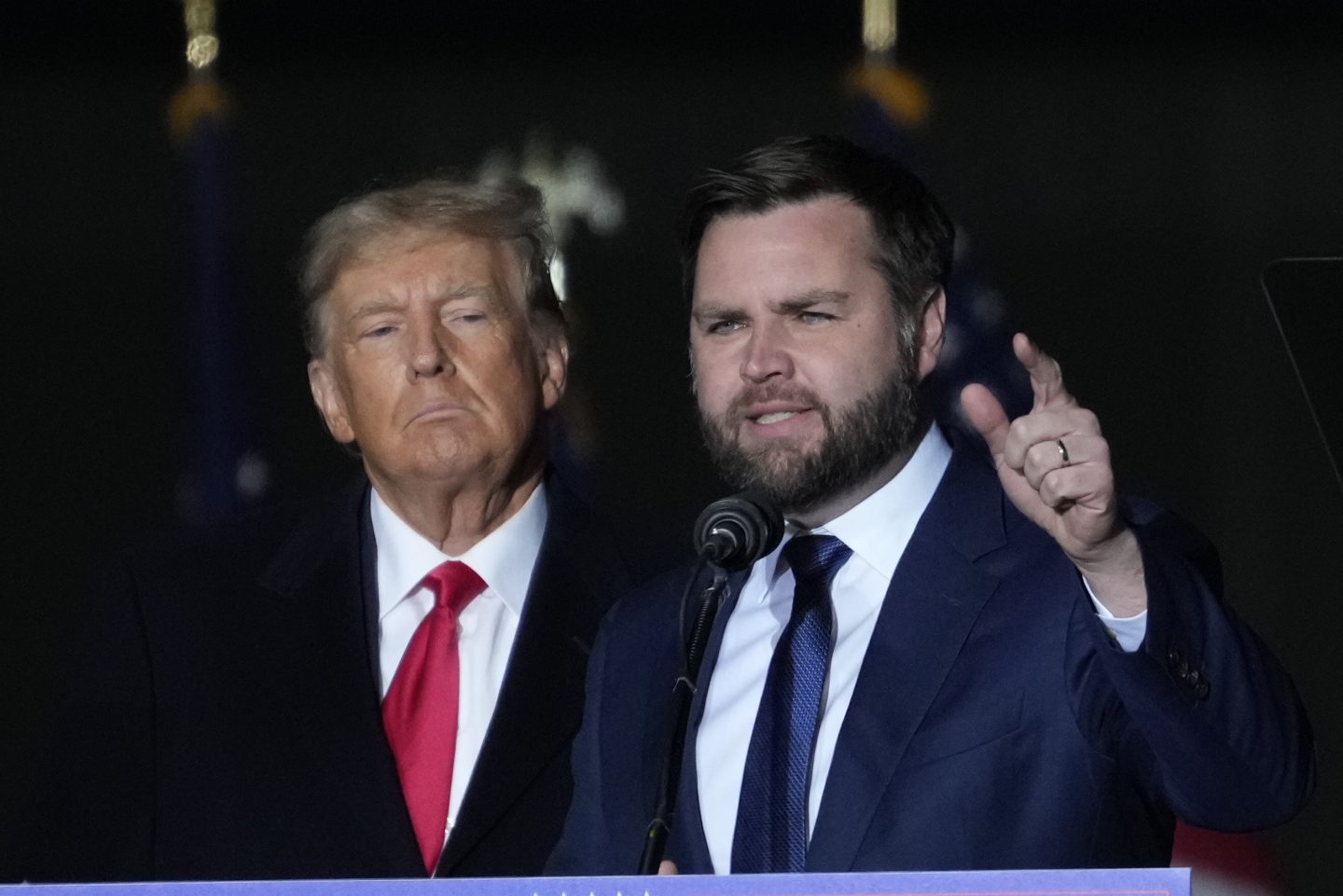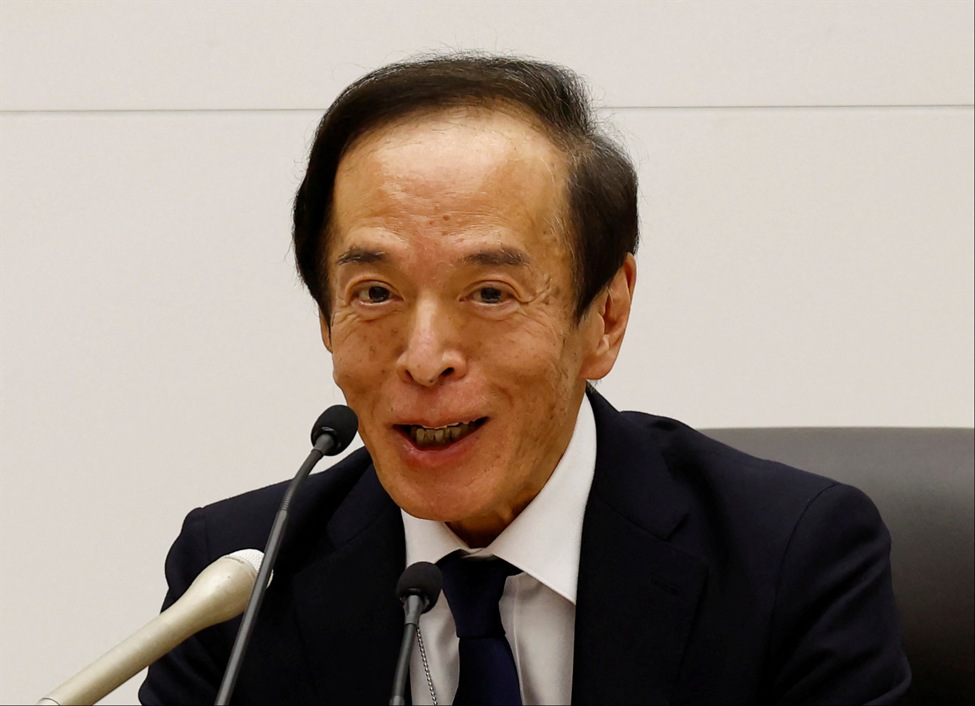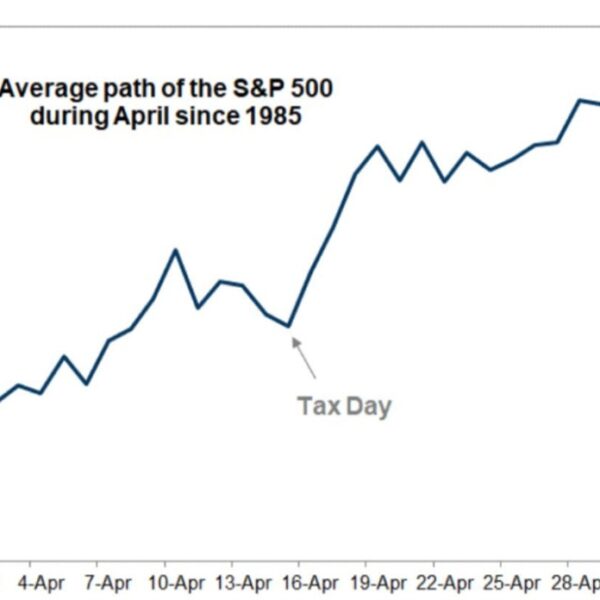

A growing movement to break from Republican orthodoxies to carve out a distinctly pro-worker platform has gained traction over the last few years. This idea—that the GOP ought to assert itself more fully as the “pro-worker party”—was solidified when Donald Trump chose J.D. Vance as his running mate and invited the president of the Teamsters union to speak at the Republican convention.
Voters will likely welcome the new GOP priorities, which are in many respects shared by Democrats and even our friends across the Atlantic. But let’s be clear: An agenda that empowers American workers through unionization and employment protection policies will come with trade-offs. The question is how much the GOP can do without diminishing America’s greatest advantage: the dynamic nature of its labor market.
Traditionally, America earned its reputation as the land of opportunity by creating a flourishing entrepreneurial environment with labor markets that generate an abundance of work opportunities for millions of Americans. Mr. Vance’s story of his own American Dream is a prime example of how that empowers the working class.
Vance’s success was not made possible through union membership that protected his job and wages, but rather through the rough-and-rugged American way—hustling from one job to another, jumping between vastly different careers, and chasing high-growth (and high-risk) opportunities. This approach worked out for him and millions of others.
Americans are accustomed to the idea that pro-worker policies—similar to those in Europe—are those that provide extensive job security, embolden unions, and ensure a structured increase in wages and promotion opportunities. A European-style approach can increase job security and ensure steady wages for existing workers. However, it comes at the expense of new and inexperienced workers, job opportunities, and job mobility. Much of Europe has chosen to push labor-market dynamism to the side.
Italy is a prime example of this tension. Despite all the country has to offer, it is not known for its thriving labor market. Indeed, my husband and almost all of his well-educated cohort from a top university in Italy were forced to seek employment abroad upon graduation. Less than 10 years ago, Italy’s youth unemployment rate was at a staggering 45%. Even today, at 23%, it remains one of the highest in the developed world.
It is no coincidence that Italy is also known for having one of the most so-called pro-worker labor policies among its Western counterparts, characterized by high rates of unionization and policies that provide extensive job security. And yet, no one is migrating to Italy to pursue the Italian Dream (unless, of course, that means living La Dolce Vita in a charming, cliffside villa with your U.S. income).
In fact, a set of studies found that when Italy even slightly reduced its protective employment regulations, it led to increased employment and more jobs, especially for younger and inexperienced workers. Italy is not a unique case, with economists having long documented how more restrictive labor regulations that protect existing jobs lead to less labor mobility, fewer job opportunities, and higher unemployment rates.
This doesn’t mean that we shouldn’t have unions or safety-net policies for workers in America. But if conservatives wish to pursue a path of European-style pro-worker policies, they must be careful not to constrain our economy’s strongest asset.
Economists have proposed a variety of unique ideas to protect workers, ranging from the earned-income tax credit to pursuing some variation of a negative income tax policy. American unions could also be transformed by eliminating their government-granted exclusive-negotiator status so that multiple unions could represent workers for any given employer. Doing so would increase union membership and give workers a more diverse set of institutions and protections or benefits to seek in the workplace.
Donald Trump and J.D. Vance are correct that conservatives should pursue a pro-worker agenda. But it must lean into what has traditionally made the U.S. labor market vibrant—entrepreneurial dynamism, not rigid European-style labor policy.
More must-read commentary published by Fortune:
The opinions expressed in Fortune.com commentary pieces are solely the views of their authors and do not necessarily reflect the opinions and beliefs of Fortune.















